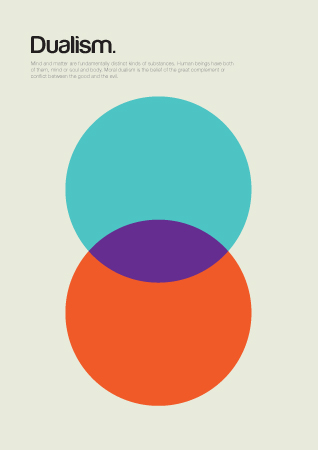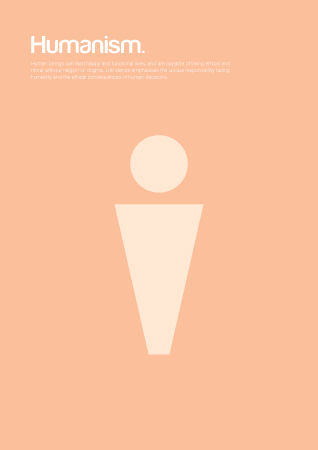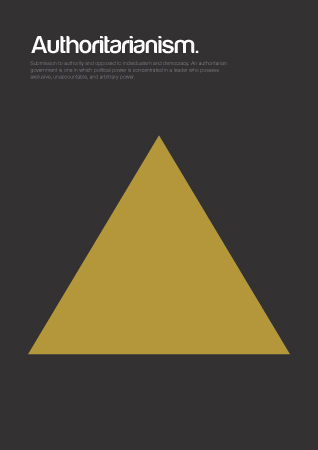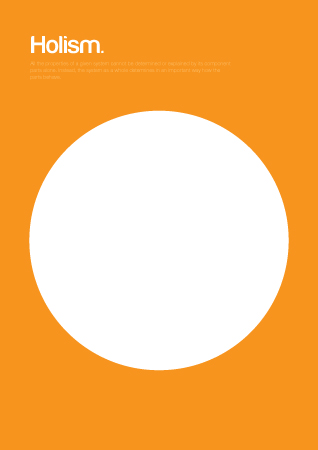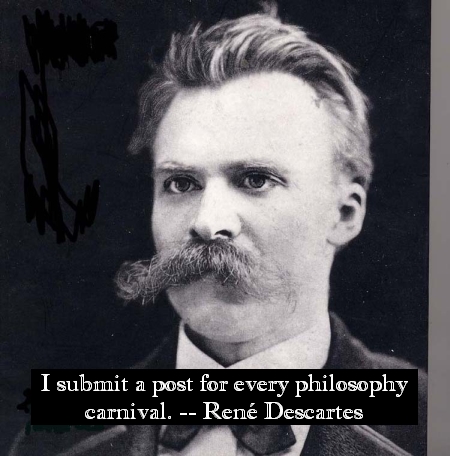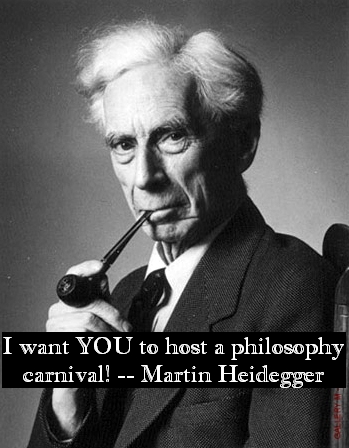Welcome to the one hundred forty first philosophy carnival. In my internet travels I found some really cool philosophy inspired posters by Genis Carreras, which I have paired with the links to pretty up the carnival.
Zombies, because philosophers like zombies.
|
Dogma
This is my favorite post of the carnival: U-Phil: Deconstructing Dynamic Dutch-Books? by Deborah G. Mayo. It is about dogmatism in Bayesian epistemology when considering Dutch Book arguments, as viewed by a frequentist. This is great stuff. Is There a Difference Between Memory and Imagination? Ok, this has little to do with dogma, but I had nowhere else to put it. Greg argues that remembering is closer to imagination since it is a reconstruction. |
Experimental Issues
What happens when people are placed under linguistic constraints and need to communicate? Experimental semiotics provides some insight with combinatoriality (recurrence of basic forms), but Gualtiero Piccinini argues that natural language is more complex. He says it requires potential infinite complexity, which may not occur with only combinatoriality. Still, ES leads him to hypothesize the “Gavagai Game” of language generation, which could provide insight into language. |
EthicsTwo different ethical views are propounded this carnival:
|
 Richard Chappell, however, outlines a position where acts are evaluated on utility, not the character of the person doing them. By evaluating acts and not the person’s character, individual accidents of psychology which may make one person much more (in)sensitive to certain issues than others may be separated from their moral will. He argues that this position is highly practical. |
The Business of Philosophy
Gregory Wheeler has an interesting set of posts about sampling problems in our favorite school ranking system, the Philosophical Gourmet Report: The Sampling Problem and Educational Imbalance. Secondly the smokers have posted and been discussing some cool research done in the area of tenure-track philosophy hiring by Carolyn Dicey Jennings. So you want a philosophy job? Take a gander and these numbers! [Go BU!] |
Two takes on Rule Following
Murali at the Leage of Ordinary Gentlemen argues for a basis of law on a two tier system, the distinction between habit and rule following, and an internal point of view. Dave Maier discusses semantic rule following in Wittgenstein. This is actually a really good discussion of how we get caught in a bind of wanting both definitions and revisability when it comes to identifying fundamental measures, but I’m actually posting this because I want to point out that my duckrabbit is better (and more stylish) than his duckrabbit. My duckrabbit should be the standard duckrabbit. And what if my duckrabbit were to significantly change? Would we have to revise all other duckrabbits to account for the change? Of course not. Since it is so inconceivable that my duckrabbit should become fundamentally different, if it were to change, it would signify that we had lost our minds. So there is no problem here at all. |
But What is Philosophy
Another article by Dave Maier, What is philosophy, again?, but this one over at 3 Quarks Daily. My contribution to the carnival is that I am starting a new blog, The Road to Sippy Cups. My inaugural post is I Sneeze, Therefore I Am. I say on the about page, “Philosophy’s goal is to wean us off ideas — even if they had sustained us — because those ideas no longer provide us with what we need, and, hopefully, onto better ones.” And I will be writing, “metaphysics with an eye towards values, humans and society.” So I encourage you to go check it out. |
If you have made it this far…… you might be an internet philosopher! So go over to the philosophy carnival page and sign up to host or submit your work! |
